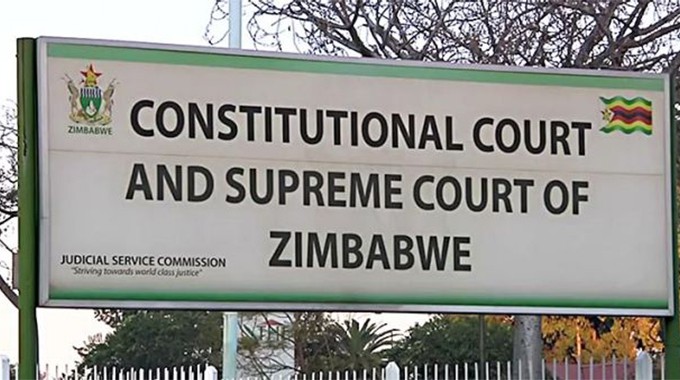A family in Umvutcha, on the outskirts of Bulawayo, facing eviction from their farm after the Ministry of Lands allegedly placed an erroneous caveat on the property, has been granted relief after the Constitutional Court upheld their application to regain ownership of their land.
The family made the application through their legal representative, Bruce Masamvu of Masamvu & Da Silva-Gustavo Law Chambers.
In the application, Alister Michael Fletcher (81) was the applicant, while the Minister of Lands, Agriculture, Fisheries, Water and Rural Development, Registrar of Deeds, and Robert Njanji were the respondents.
The counsel argued that the state could not acquire urban land under Section 16B of the former Constitution and Section 72 of the current Constitution.
The judgment was delivered by judges Justice Rita Makarau and Justice Ben Hlatshwayo, who agreed with the arguments made by the counsel, represented by Advocate Thabani Mpofu, that the state cannot acquire urban land, under which the applicants’ land falls.
“I fully agree with counsel for the applicant that there is a paramount public interest in the eventual outcome of this matter. The correct interpretation of Section 16B of the former Constitution, as well as Section 72 of the current Constitution, is very much alive. The import of the order granted in the Kondonis case (supra) is abundantly clear: The State cannot acquire urban land under Section 16B(2),” the court document read.
“The evidence in casu shows that residential properties have been constructed on the land in question. Moreover, the Bulawayo City Council, an undoubtedly interested party, was not heard in the disposition of this case. In these circumstances, the correct interpretation of the law is essential and unavoidable.
“It is unquestionably necessary for this Court to provide a definitive answer to the question as to whether land designated as urban land can lawfully be acquired by the State under Section 16B of the former Constitution, as well as Section 72 of the current Constitution. Accordingly, in my considered opinion, it is clearly in the interests of justice to grant leave to appeal in this matter.”
The court papers further read, “In conclusion, it appears to me that the court a quo fundamentally misconstrued and consequently misapplied the law governing the compulsory acquisition of agricultural land, and that it did so both substantively and procedurally.
“In the event, I take the view that its judgment is likely to be materially altered or overturned on appeal before the full bench of this Court. My conclusion is premised on the fact that the matter at hand pertains to a constitutional issue which, in my assessment, has reasonable prospects of success on appeal. Given the great likelihood of success, it is in the interests of justice to grant leave to appeal in this case.”
Masamvu explained to CITE that the judgment now allows them to appeal the prior Supreme Court judgment, which had claimed that the state can acquire urban land under Section 16B.
“This judgment basically confirms our argument that in terms of Section 16B, the state can only acquire agricultural land, not urban land. So the court found that there are constitutional issues that need the full Constitutional Court bench. We have thus been allowed to appeal the Supreme Court judgment, which in essence had said the state can acquire urban land using Section 16B,” Masamvu explained.
This same judgment further stays the proceedings at the Magistrate’s Court, in a case where, in February 2024, Fletcher had been summoned at Tredgold to answer to a charge of illegally occupying gazetted land.
The matter was postponed awaiting the outcome of the application before the Constitutional Court.

